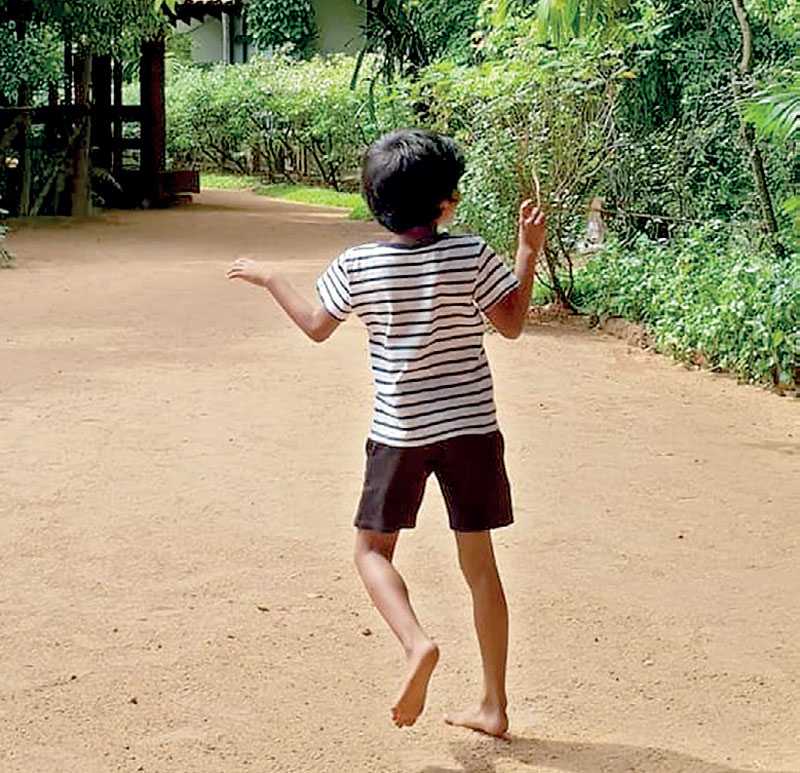Monday Feb 16, 2026
Monday Feb 16, 2026
Saturday, 8 May 2021 00:04 - - {{hitsCtrl.values.hits}}

 A child on the autism spectrum is first and foremost a child. Autism is part of the child’s life and identity, but it does not define everything about them: and the same applies for their parents. Being mother or father to an autistic child can feel challenging or overwhelming, especially if the necessary support systems, resources, or knowledge is not there. However, parents can learn to address the specific needs of autistic children, connect with them in their own unique ways, and create an environment that allows both the children and themselves to thrive.
A child on the autism spectrum is first and foremost a child. Autism is part of the child’s life and identity, but it does not define everything about them: and the same applies for their parents. Being mother or father to an autistic child can feel challenging or overwhelming, especially if the necessary support systems, resources, or knowledge is not there. However, parents can learn to address the specific needs of autistic children, connect with them in their own unique ways, and create an environment that allows both the children and themselves to thrive.
According to studies among parents of autistic children, some of the key challenges they experience include managing daily life with an autistic child, navigating the education system, and building their child’s skills and confidence to prepare them for adulthood.
Managing daily life
After coming to terms with the diagnosis of ASD, parents need to find ways to structure their life and provide routines. It can be difficult to manage challenging behaviour or “meltdowns” and address repetitive behaviour patterns. Autistic children often have digestive problems or may avoid or seek specific sensory inputs. They may also need constant supervision and require parents to safety-proof their home to protect them from harm.
Parenting an autistic child does not take place in a vacuum. Parents still need to earn an income, run the household, attend to social duties, and look after other children, the elderly, or the sick. Balancing all this with the attention and special care that an autistic child requires can be challenging and create a significant amount of stress.
To counter this, parents should acknowledge their own needs as well, at least to the extent that is possible. This can include stress management, relaxation exercises, finding breathing room or respite, establishing family traditions and activities that structure leisure time, organising their schedules more effectively,
Education and training
Sri Lanka’s school system generally places an emphasis on academics that can make it harder for autistic children to connect. Many autistic children are largely or completely non-verbal, although they still have their own ways of communication. It is often difficult for autistic children to keep up with school studies and activities at the level that is usually expected for their age. Autistic children work and process information differently, and a traditional school environment might not be conducive to their learning process and sensory sensitivities.
Recognising this and connecting with autistic children is a challenge that should be addressed by parents, teachers, therapists, and other support workers in a joint and holistic fashion. To participate in the regular school systems, autistic children will likely require assistance such as a shadow teacher, quiet rooms, or special assignments.
Life-long support
Parents worry about their children's future, autistic or not. What will happen when these children reach adulthood and must choose their own path? What will happen when their parents turn older and are no longer able to look after them? And finally, what will happen to them after the parents' death, when they might be left on their own?
These questions are even more vital and urgent for parents of autistic children. Parents can try to equip their children with life and work skills, foster their talents and confidence, and help them achieve a degree of independence. However, society at large also has a crucial role to play by creating systems and institutional structures that allow autistic adults to life, work, and support themselves to the maximum extent, for example through assisted living facilities, employment opportunities, vocational training, and regulations for autism-friendly workplaces.
Autism spectrum disorder will change the life of children and their parents, but it does not have to define or limit them. If parents can find ways to address both their children’s and their own needs, and if society can understand, enable, and accept autistic individuals, it will be beneficial for everyone in the long run.
(Dennis Mombauer works as Director: Research & Knowledge Management at SLYCAN Trust, a non-profit think tank based in Sri Lanka. He holds a master’s degree in Education from the University of Cologne, Germany, and is a parent of an autistic child. Besides autism and education, his work also focuses on climate change and related issues, and he publishes articles in numerous places, for example Mongabay, Earth Island Journal, The Environmental Blog, Daily FT, and Colombo Telegraph.)